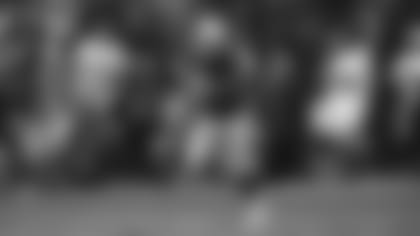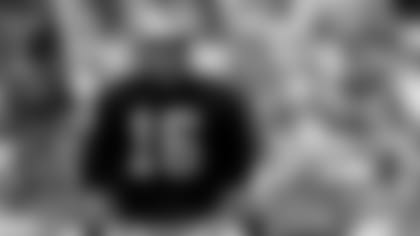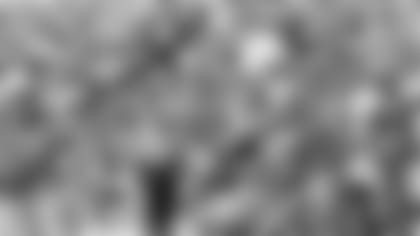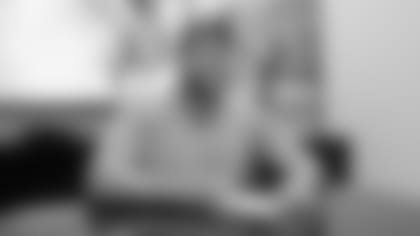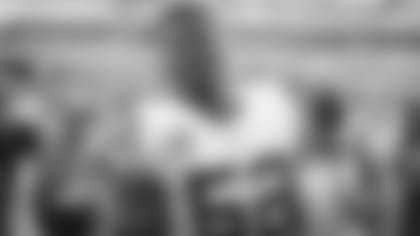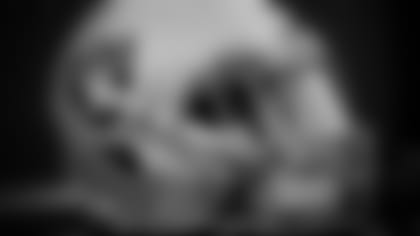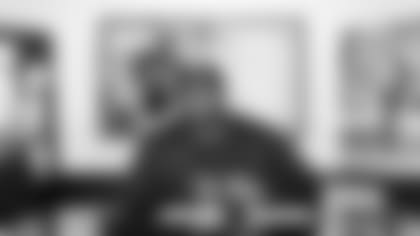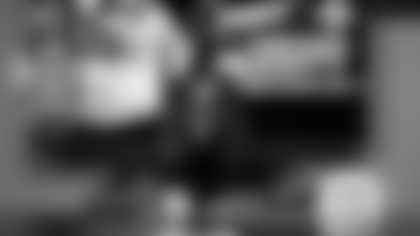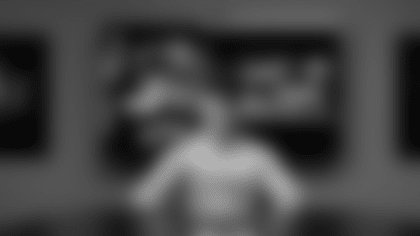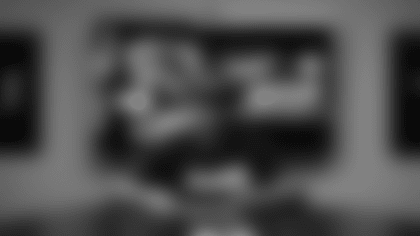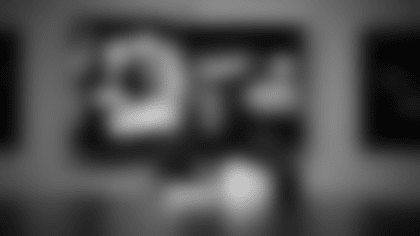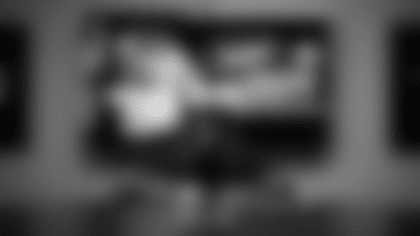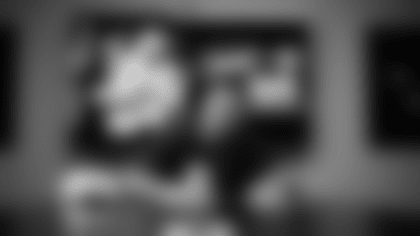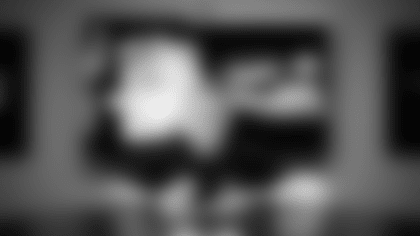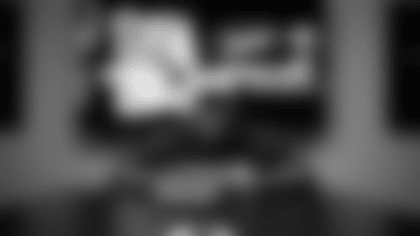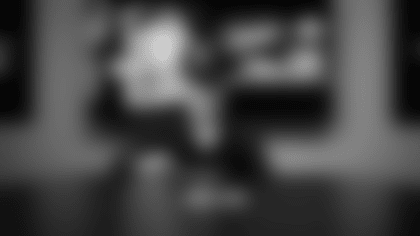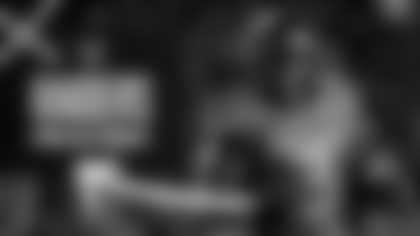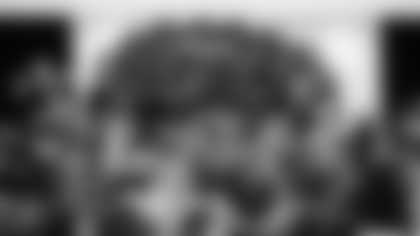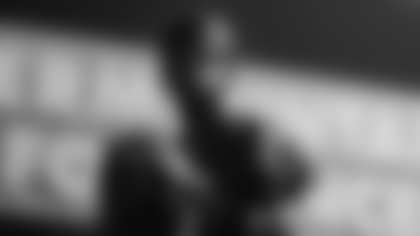December 8, 1963
Revolution had come to the Oakland Raiders in 1963. Al Davis had come to the ailing Oakland club from the powerful San Diego Chargers. At age 33, Davis was the youngest man at the time in professional football to hold the dual responsibilities of head coach and general manager. In fact, only one man - NFL founder George Halas – had ever held these jobs together at a younger age.

Then-Head Coach Al Davis talks things over with safety Joe Krakoski.
The Raiders had finished dead last in 1962 with a pitiful 1-13 record. For their three struggling years, the Oakland Raiders had a 9-33-0 record, easily the poorest mark of any team in the young American Football League. But things changed, and changed quickly, on and off the field.
Draft choices were signed, trades were made, free agents came to Oakland, option play-outs moved west. A football team was being assembled. Training camp moved from the resort coastal playground of Santa Cruz, California, to warm, quiet inland Santa Rosa - 65 miles north of Oakland. New assistant coaches and scouts joined the organization. Every activity was reviewed in detail. Seven-day work-weeks became the norm, with each day a long and productive one. Phone bills climbed as information on college and pro personnel was sought, collected and catalogued.
The Raiders opened the eventful 1963 season with a win - a first in their four years in the league. They followed the first win with a second - a win over the Chargers, 34-33, in San Diego on October 27th. By the time the Raiders rematch with the Chargers arrived in Oakland in early December, the Raiders had scratched and clawed and fought their way to a 7-4 record for the '63 season.
Tiny Frank Youell Field, a temporary ballpark in downtown Oakland, was filled to capacity with 20,249 in attendance. The Chargers, champions of the AFC West for two of the three seasons of AFL operation, were in to visit against a team they had beaten six of seven times since their rivalry began in 1960.
The San Diego Chargers were an outstanding club under Sid Gillman. "Blue Chip" athletes were everywhere - many originally recruited for the Chargers by Al Davis during his years there, including future Pro Football Hall of Famer Lance Alworth at flanker and Ron Mix at offensive tackle. Tobin Rote, a proven veteran of more than a decade in the NFL and Canadian Football League, was at quarterback.
The Chargers displayed their offensive punch from the "go" of the December 8th match up. Rote passed to halfback Keith Lincoln on the game's first play for 26 yards. A few downs later it was Rote to wide receiver Don Norton for 32 yards and the first touchdown. Chargers led 7-0 with only 1:53 elapsed in the opening quarter.
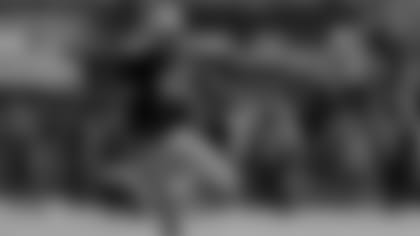
Bo Roberson returns a kickoff.
Bo Roberson, a former Olympic sprinter, returned the kickoff 39 yards, but on third down the series ended abruptly as Raiders quarterback Tom Flores went down under a herd of Chargers pass rushers.
In their next series, however, the Raiders got moving. A halfback pass by Clem Daniels to big wide receiver Art Powell, then two completions from Flores to Powell set up a 37-yard field goal by Mike Mercer, Chargers 7 - Raiders 3.
At the start of the second quarter, San Diego added a touchdown to pull ahead 14-3. Then Flores went deep down the middle for 46 yards and a touchdown to Powell to close in again, Chargers 14 - Raiders 10.
San Diego fired back, scoring with 50 seconds left in the half and a missed extra point, going into the dressing room ahead 20-10 at halftime. There had been a total of 458 yards on offense in the first half.

Cotton Davidson came off the bench at quarterback in the second half.
Raiders head coach Al Davis changed to Cotton Davidson at quarterback in the second half. The Silver and Black moved the ball well, but failed to score in the third quarter. Late in the period, the Chargers lit up the scoreboard again when Rote fired a 15-yard scoring pass to Alworth to make the score Chargers 27 - Raiders 10 at the end of the third quarter.
Five plays into the final quarter, Raiders safety Tommy Morrow recovered a Chargers fumble on the San Diego 39. A classic Raider comeback began. It's easy to refer to the Raiders comeback tradition in the mid 1990s, but in 1963 that history of come-from-behind wins did not yet exist. It had to be fought for, developed, nurtured and passed on from squad to squad. Pride and poise, commitment to excellence - these things would be bought and paid for only with blood, sweat and tears. This fourth quarter comeback against the Chargers was the beginning - an important beginning.
Davidson on third-and-goal from the San Diego 10, passed to Art Powell for a touchdown to cut the Chargers lead to ten points at 27-17. Twelve minutes and 48 seconds were left on the game clock.
Two plays after the kickoff, the Raiders defense forced another turnover. This time, safety Joe Krakoski recovered a fumble on the San Diego 23-yard line. The roar of the crowd far exceeded the size of the crowd, but San Diego would not surrender. After three incomplete passes, Mercer drilled home a 30-yard field goal to bring the Raiders within seven, 27-20, with 11:36 remaining.
Rather than running down the clock, the Chargers came out passing, but came up short. With fourth-and-five on their own 38, the snap to punter Paul Maguire dribbled back on two bounces. Maguire couldn't get the ball picked up and tried to kick it as it rolled on the ground. The ball squirted to the San Diego 43.
The Raiders comeback continued. On one crucial third down, Davidson scrambled free to gain 12 yards and the first down. Then, on first-and-ten from the San Diego nine, a designed quarterback draw sent in by Coach Davis took advantage of the spread-out Chargers pass defense and allowed Davidson to run in for the tying touchdown. Raiders 27 - Chargers 27, with 7:54 to play.
On the next San Diego punt, with a facemask penalty tacked on, the Raiders took over on the San Diego 39. On third down, Davidson passed 40 yards into the San Diego end zone to Powell for the touchdown that put the Oakland Raiders ahead, 34-27, with 5:35 left to play.
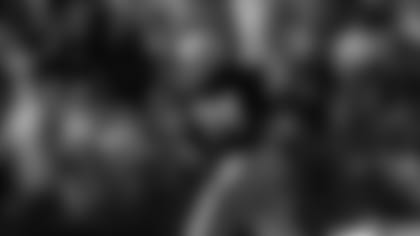
WR Art Powell hauls in a 40-yard TD pass.
Charger head coach Sid Gillman, now a Pro Football Hall of Famer like his challenger on the other sideline Al Davis, now changed to younger, more mobile quarterback John Hadl. Raider linebacker Archie Matson broke up Hadl's third-down pass attempt, however. Then, when San Diego decided to throw on fourth down, linebacker Clancy Osborne alertly stepped in front of the Hadl aerial on the Raider 40 and returned the interception down to the Charger 12-yard line.
Three plays later fullback Alan Miller plunged over from the two to increase the Raiders lead to 41-27 with only 1:06 remaining. To prevent any San Diego heroics, the Raiders went for a surprise on-side kick by Mercer. Glenn Shaw recovered for Oakland and the contest ended with the Raiders in control of the ball - and the ball game.
The Oakland Raiders had scored 31 points in the fourth quarter - a club single-quarter record that still stands nearly 40 years later. In fact, the Raiders actually scored these 31 points in a span of just 11 minutes and 42 seconds.
Incredible? A miracle? Unbelievable? Not really. This comeback - a forerunner of so much to come - was the result of meticulous planning, intense preparation and great execution by players and coaches alike. The Raiders, who had gone 1-13 in 1962, would go 10-4 in 1963 under new head coach-general manager Al Davis.
Names and faces, leagues and stadiums, playing rules and playing sites would change over the years ahead. But one thing would never change for this remarkable organization - RAIDER WILL TO WIN WOULD ENDURE FOREVER.



